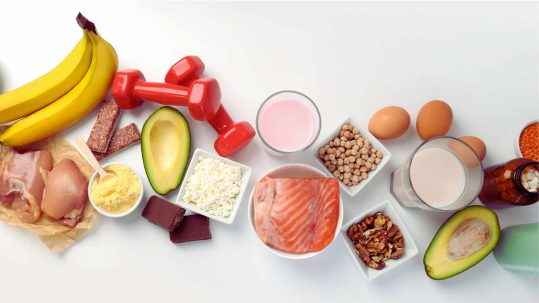
ADHD and Eating Disorders
Registered Dietitian Nutritionists Provide Counseling for Patients with ADHD struggling with Anorexia, Bulimia, Binge-Eating Disorder, and Disordered Eating.
Why do people with ADHD struggle with eating?
People with ADHD can have a complex relationship with food. This is primarily because of impulsivity, sensory sensitivity, hyperactivity, and distractibility. Addressing these issues with a registered dietitian can give the needed guidance for the parent or individual struggling. As dietitians, and experts in the intersection of ADHD and eating disorders, we can offer ideas for structured meal times and create a supportive eating environment.
We provide online and in-person nutrition counseling as well as family-based treatment to give support to families, parents, and caregivers of those struggling with ADHD and eating disorders. Our outpatient eating disorder treatment program and recovery coaching can keep you or your loved one on track to healing and sustained recovery.

Is there a link between ADHD and eating disorders?
While the dynamic between these two behaviors can be multifaceted, there is certainly a link between the two. Research has shown that ADHD is most commonly linked to bulimia and binge eating disorder. Keep in mind that not everyone with ADHD will develop disordered eating behaviors; however, they are more at risk.
Part of the reason for this increased risk comes down to how the brain works in ADHD. Kids, teens, and even adults with ADHD often deal with impulsivity and challenges with emotional regulation, meaning they may react quickly without thinking things through, or have a harder time managing big feelings. That can show up in eating patterns, too. For example, someone might turn to food as a way to cope with stress or boredom, especially if they don’t yet have other tools to manage those feelings. Nutrition Action recently touched on this, highlighting how food can sometimes become a kind of emotional crutch when someone’s trying to self-soothe.
We also see that irregular routines—like skipping meals or having disrupted sleep—can throw off hunger and fullness cues. That’s already common in ADHD, and it can make eating feel more chaotic or emotionally driven. On a biological level, both ADHD and some eating disorders are tied to how the brain processes rewards, especially around dopamine. So it’s not just about willpower or habits—it’s about how the brain is wired.
The good news is, with the right support—whether that’s therapy, structure around meals, medication, or building healthy coping strategies—there’s a lot that can be done to reduce the risk of disordered eating and help someone with ADHD feel more in control of their relationship with food.


What are the most common eating disorders with ADHD?
The most common eating disorders associated with ADHD are binge eating disorder and bulimia nervosa.
- Binge Eating Disorder: This is a complex, serious disorder characterized by feeling out of control when eating and consuming much larger quantities of food than usual.
- Bulimia Nervosa: This is characterized by recurrent episodes of eating large amounts of food over a short period (bingeing) and unhealthy compensatory behaviors (purging).
ADHD and these disorders’ symptoms tend to overlap. This can include low self-esteem, emotional dysregulation, impulsivity, genetic and environmental factors, as well as body image concerns.
What can nutrition therapy do for ADHD and eating disorders?
Meeting with a registered dietitian who specializes in these two disorders can assist in navigating underlying nutritional factors that may be present. Medical nutrition therapy includes:
- Assessing dietary patterns.
- Assessing nutritional status.
- Developing personalized meal plans to support overall health.
- Educating on the importance of balanced nutrition for managing ADHD symptoms.
- Identifying how medication might be affecting wellness, gut health, and the relationship with food.
- Providing strategies for meal planning and preparation.
- Collaborating with the healthcare team to address underlying nutritional deficiencies or imbalances.
A dietitian within our practice can help with recommendations that offer a balanced diet without feeling restricted, working to regulate blood sugar levels, and identify food sensitivities.

Our Team of Dietitian Nutritionists in the Greater St. Louis Area
Branz Nutrition Counseling is a team of certified eating disorder dietitians who provide compassionate care to those struggling with their relationship to food. Our approach is weight-inclusive, LGBTQIA+, and social justice-oriented, which means that we believe that everyone deserves access to quality care.
We can’t wait to meet you!

With locations in Illinois and Missouri, we offer both virtual and in-person counseling sessions. And, we are licensed to provide Telehealth nutrition therapy to patients around the country.
Arizona | Arkansas | California | Colorado | Delaware | Florida | Georgia | Illinois | Missouri | New York | Texas | Virginia | Iowa
We see clients in person in the St. Louis area, Missouri, Illinois, and from around the country via Telehealth. Learn more here.
We help individuals and families heal their relationships with food and body through compassionate, weight-inclusive care—supporting eating disorder recovery and managing chronic conditions like PCOS, diabetes, and heart disease using Intuitive Eating and Health at Every Size principles.







Michelle Wilson
MS, RDN, LDN, CEDS-C, CIEC Registered Dietitian
Associate Clinical Manager
Learn more

Scroll to see the whole team.
How It Works – An Easy Three-Step Process to Get You on the Road to Recovery
Make An Appointment
What service do you need? We offer a range of appointments of different durations to best fit your needs, including online support groups, meal plans, and more.
Meet with your Personal Dietitian
Be paired with the dietitian nutritionist on our team and get continued support with one of our online groups. One-on-one counseling, in-person, or virtual. WE TAKE INSURANCE!
Take Control of Your Life
Heal your relationship with food and your body. Choose the best foods for your unique needs. Get the tools you need to live a healthy life. Receive continued support.
Note: In order to secure a spot on a dietitian’s schedule, we need a valid payment method on file.
Our Testimonials
Thank you for choosing us as the Best Dietitian Practice in STL (2023)
Branz Nutrition in the Media
Best Diets 2024 By Michelle Wilson
Intermittent Fasting By Michelle Wilson
How Healthy is That Pumpkin Latte By Michelle Wilson
Tips for Getting Back to a Healthy Eating Patterns after the Holidays By Michelle Wilson










 Erica Branz
Erica Branz